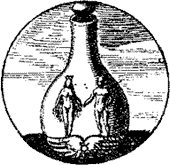| Psychotherapy
is at bottom a dialectical relationship between doctor
and patient. It is an encounter, a discussion between
two psychic wholes, in which knowledge is used only as
a tool. The goal is transformation—not one that
is predetermined, but rather an indeterminable change,
the only criterion of which is the disappearance of egohood.
--C.G.
Jung (CW 11:904) |
 Jungian
Analysis Jungian
Analysis
First
and foremost, Jungian analysis honors the unique individuality
of each client. Therefore, it is not a set program or
technique, but shapes itself to the client's situation.
Typically it involves dream analysis, but if a client
does not remember dreams, that is fine. It may also include
sandplay, painting, drawing, and other kinds
of expressive arts, if the client is
inclined. Or it may consist solely of talk therapy.

Jungian
analysis deals with the typical experiences that bring
people to therapy such as life transitions, depression,
neurosis, anxiety, illness, and loss. These painful
times can provide a chance to find the larger meaning
in the situation, even the myth of one's life. The process
of doing this is called individuation, the movement toward
wholeness, or becoming what one truly is. This process
involves surrendering control to something inside ourselves
that is wiser than the ego, which Jung called the Self.
Jungian therapy is primarily forward-looking, focusing
not on assigning blame and looking
for past causes, but rather on what one will make of the
situation, how one rises to the challenge. In alchemical
symbolism, this is transforming the lead into gold.
 C.
G. Jung (1875–1961) was a Swiss psychiatrist who
based his theories on his own rich experiences of the
psyche, his “confrontation with the unconscious.”
Although sometimes dismissed as a “mystic”
and not highly regarded in most academic circles, studies
have shown that many of Jung's notions have been validated
by recent scientific research. Interestingly, it seems
that while consciousness behaves in a linear, Newtonian
manner, the workings of the unconscious parallel the behavior
of the very small particles observed by chaos physics.
As this new paradigm becomes more familiar, Jung's insights
will become better understood. C.
G. Jung (1875–1961) was a Swiss psychiatrist who
based his theories on his own rich experiences of the
psyche, his “confrontation with the unconscious.”
Although sometimes dismissed as a “mystic”
and not highly regarded in most academic circles, studies
have shown that many of Jung's notions have been validated
by recent scientific research. Interestingly, it seems
that while consciousness behaves in a linear, Newtonian
manner, the workings of the unconscious parallel the behavior
of the very small particles observed by chaos physics.
As this new paradigm becomes more familiar, Jung's insights
will become better understood.
|
| We
must be able to let things happen in the
psyche. For us, this is an art of which
most people know nothing. Consciousness
is forever interfering, helping, correcting,
and negating, never leaving the psychic
processes to grow in peace. It would be
simple enough if only simplicity were not
the most difficult of things.
--C.G.
Jung (CW13:20) |
|
|